5 things you need to know before your first ultra
Ultra marathons are some of the greatest tests of running endurance on the planet and yield unforgettable experiences - if you're well prepared. Take note of these lessons learned the hard way before you hit the start line!
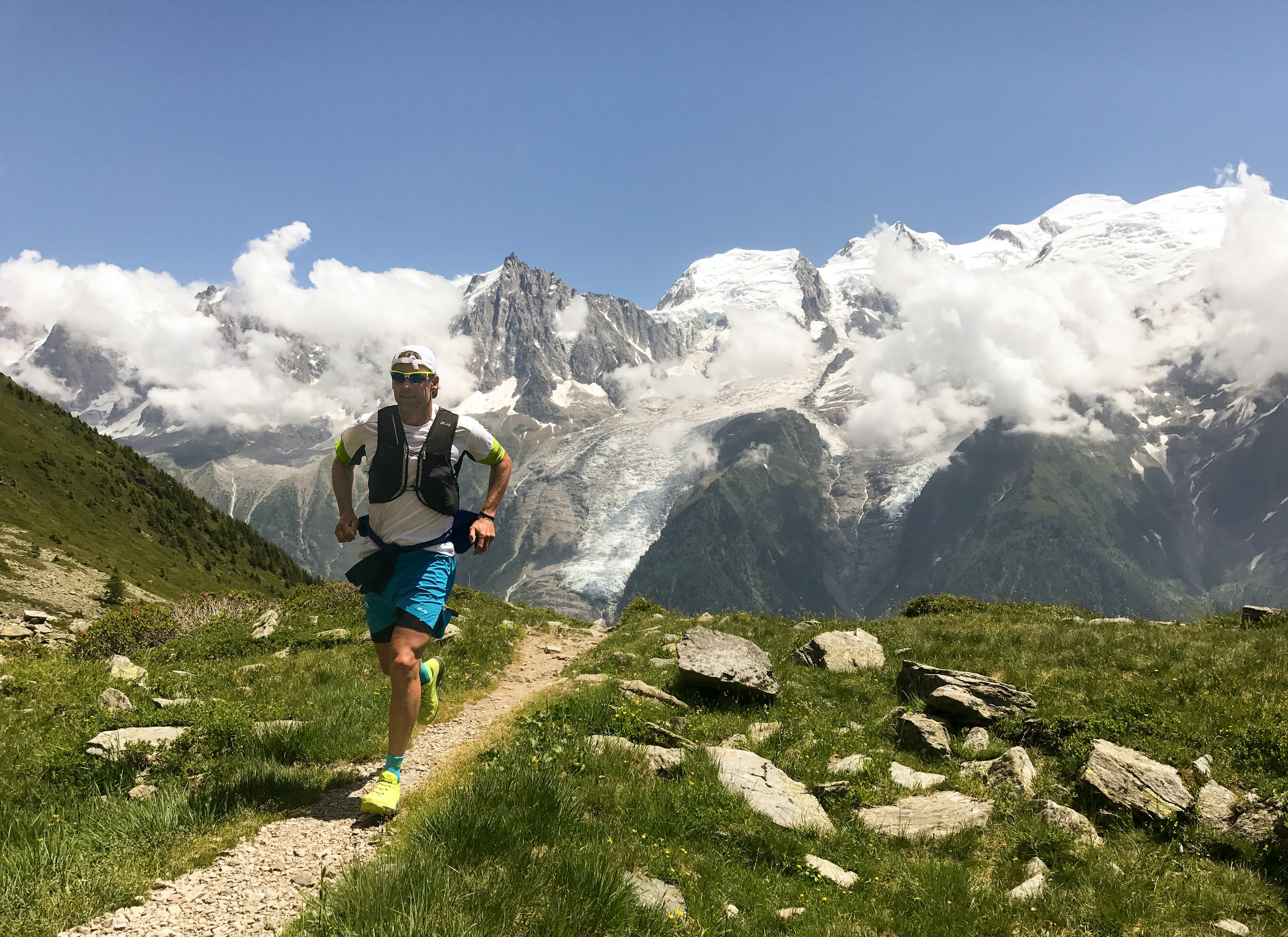
To anyone unfamiliar with them, ultra marathons can seem like a ridiculous concept, unsafe even. A regular marathon covers 26.2 miles, takes hours to complete and is regarded by many runners as the pinnacle of their running career - surely anything further than that is just a bit daft?
Well, yes and no.
No great powers of deduction are needed to work out that ultra marathons are endurance running events but this doesn't necessarily make them extreme. In fact, a key part of ultra running is taking your foot off the gas and slowing down your pace.
While this is mainly to conserve energy for a longer distance, it also means that you can better appreciate the environment in which you're running. In this way, ultra marathons become mindful experiences as well as serious endurance challenges.
That helps to explain why ultra marathons have taken off in recent years, growing from the eyebrow-raising adventures of a few eclectic runners to some of the biggest running events on the planet. The recent creation of the UTMB World Series has helped to popularise ultra running but there are many smaller, local ultra marathons across the UK to get involved in too.
Which leads us to the key point:
What do you need to know before taking on your first ultra?
Getting started as an ultra runner is easier than you might think - no, seriously. Based on our personal experiences of ultra running, interviews with elite athletes and race-side chats with event organisers, these are five things you need to know before your first ultra marathon.
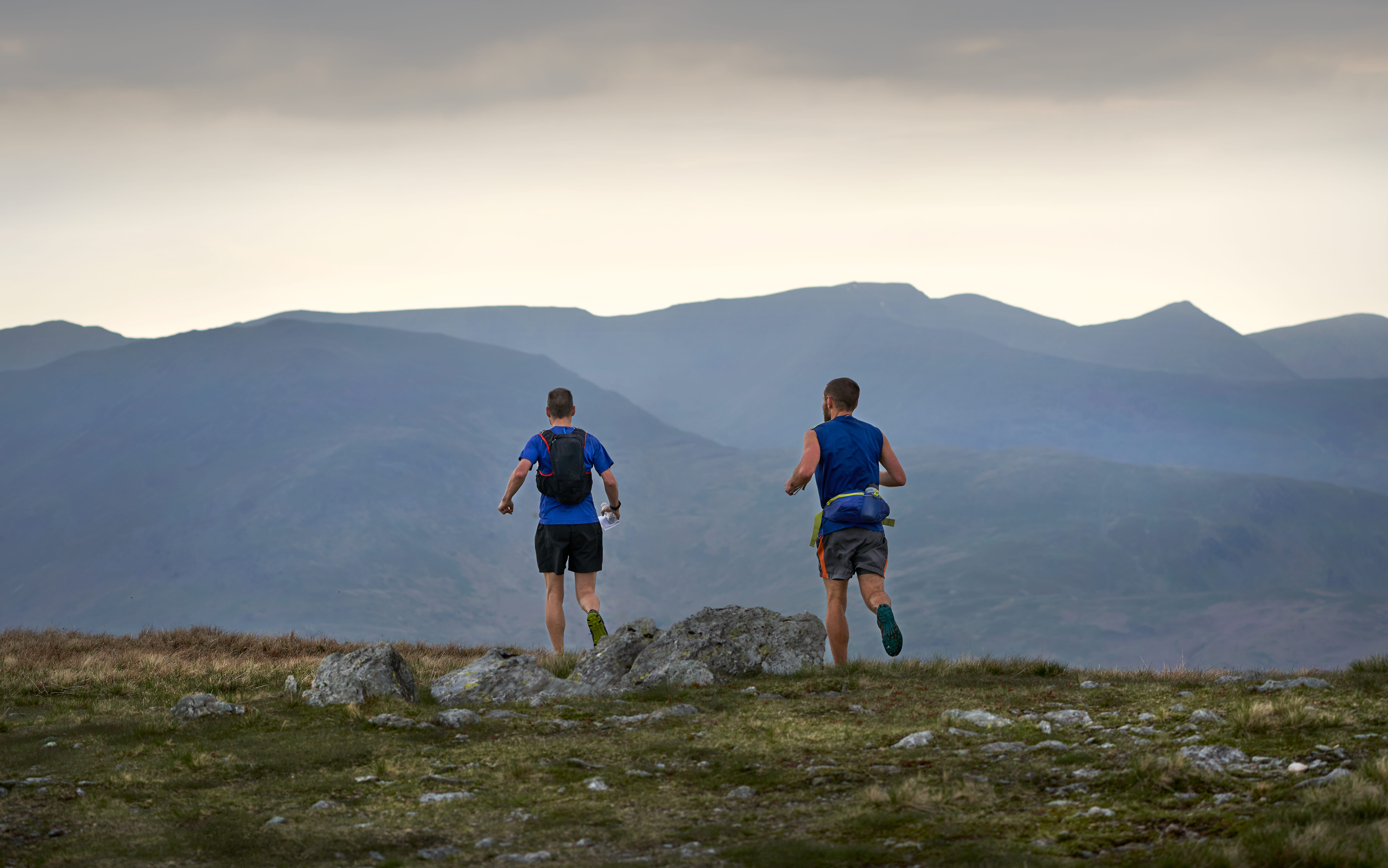
In an ultra marathon, you could easily be running into the evening.
ULTRA MARATHON DISTANCES VARY WILDLY
Race to the Stones, one of the UK's most popular ultra marathons, can be tackled in a few different ways, including running a single 50K leg (that's 31 miles). By comparison, the Chester Ultra covers 100 miles, over three times the distance; if you take on the infamous Montane Dragon's Back Race, you'll be running 236 miles!
What does this mean for you?
You need to know what you're up against.
An ultra marathon is a race that is longer than a regular marathon, which means you could be running 30 miles or 300. Although we fully expect you to be aware of what distance you're signing up for, don't expect all ultra marathons to be the same. The way you prepare for a 100K ultra is going to be different to training for a 100 mile ultra.
Which brings us to our next point:
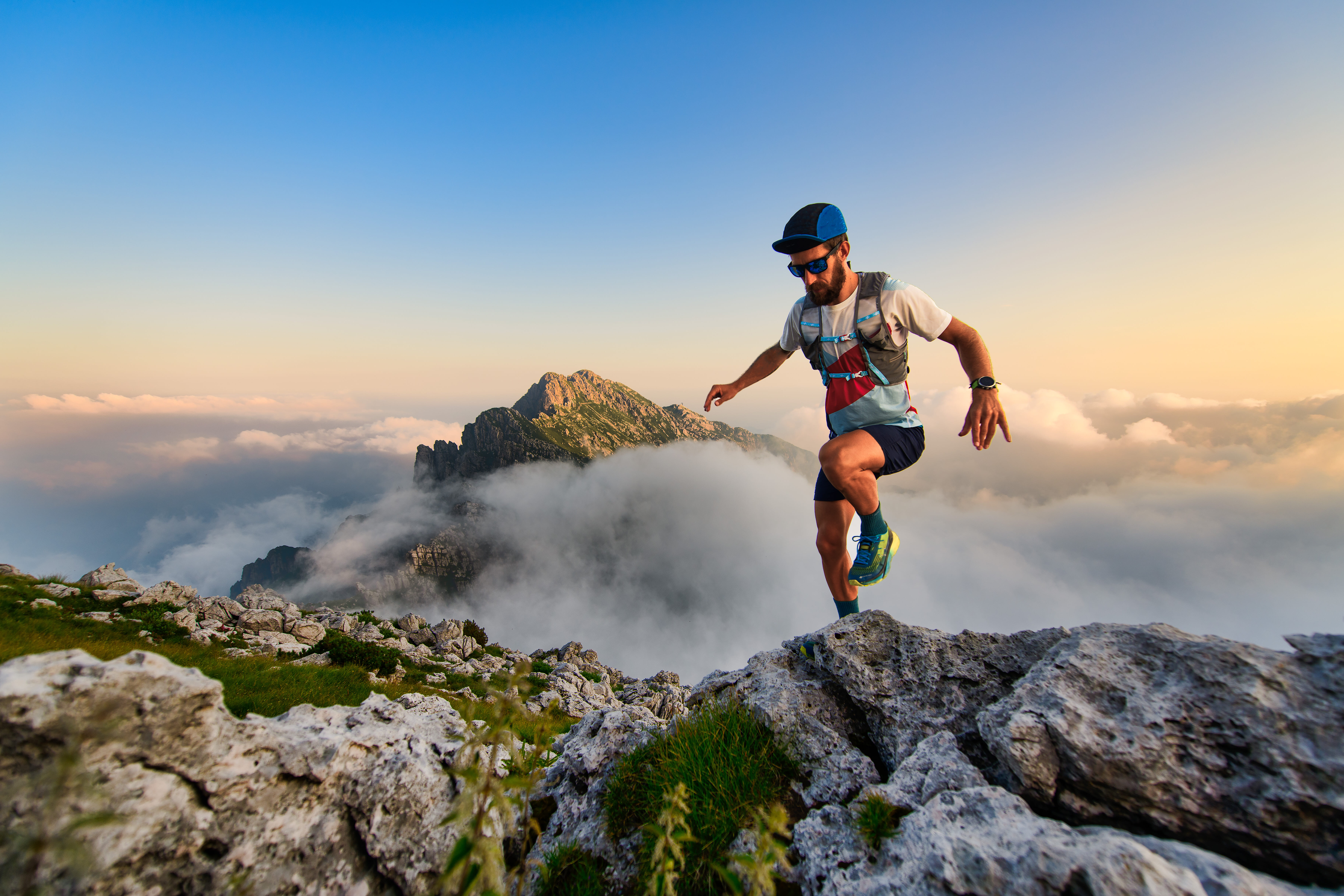
To run in the mountains, you need to train in the mountains!
TRAINING FOR AN ULTRA MARATHON TAKES TIME
If you're a competent marathon runner, taking on a 30-mile ultra is not going to demand too much more from you in terms of training and preparation. Otherwise, preparing for an ultra marathon, particularly anything approaching 100K or longer, is going to take some serious preparation and training.
The key is to be specific.
Nicky Spinks, the record holder for the Double Bob Graham Round (a 112-mile route over 84 peaks in the Lake District within 48 hours), told us that the key to her success was cutting out junk miles in training. After seeing a coach her "training became more about quality speed work with some long runs mixed in there as well".
Simply cranking out long runs ad nauseum isn't going to cut it - you need to have a plan.
The key is to start slow and, for the most part, keep it there. Yes, speed sessions and other types of training have their place, but your ultra marathon is going to be run at a steady pace so that's how you should train most of the time. Build up the distance slowly as you feel more comfortable and don't be tempted to push yourself too far too soon - that way only injuries lie.
Even better, try to train in an environment similar to the one in which you'll be running during your ultra. As Nicky puts it, "if you're training for a race in the hills, you really need to get to the hills". While you might not live somewhere as rich in rugged trails as the Lake District, heading to somewhere that mimics the race environment every month or so is an essential part of your training.
Why is that so important? Well...
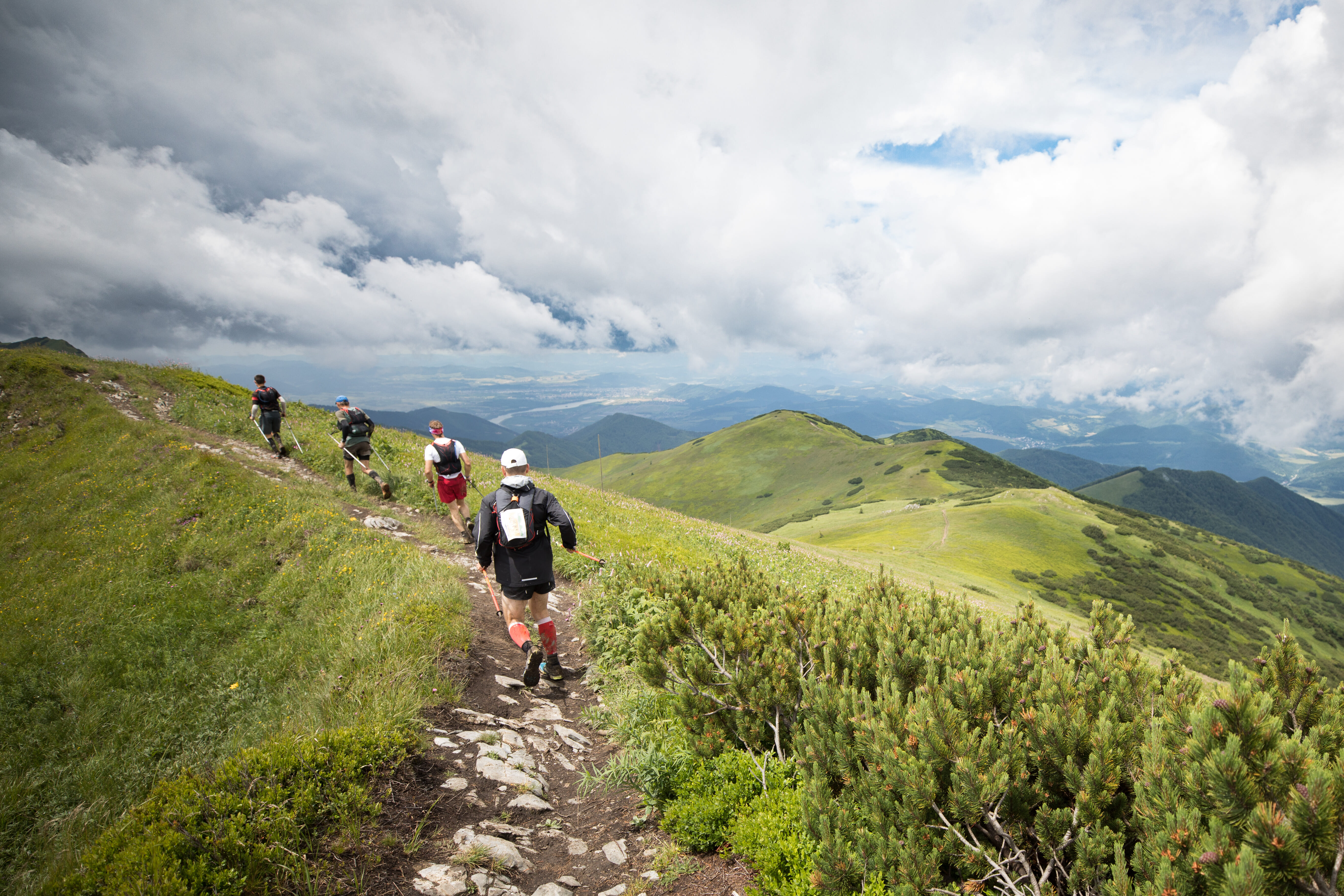
Running on trails elevates ultra marathons to a new level.
ULTRA TRAIL RUNNING IS A DIFFERENT BEAST
True, there are plenty of ultra marathons that are run on flat ground and over tarmac, like the Bingley Bo**ocks series, run along the Leeds to Liverpool canal towpath. For the most part, though, ultra marathons and trail running go hand in hand.
Major races like the UTMB are the most iconic examples of this but there are plenty of off-road ultras across the length and breadth of the UK, ranging from 30 to over 200 miles. And for these races, running on trails is a blessing in disguise.
While long distance races on roads allow runners to work into a steady rhythm, chugging along like a metronome, heading off-road throws natural obstacles like tree roots, muddy surfaces and uneven paths in the way to slow you down. Although that sounds like the worst advert for trail running, it's actually perfect for ultra marathons.
Why is that?
As we stated earlier, ultra running is not about setting a new PB or racing - it's about immersing yourself in an incredible environment and challenging yourself to tackle something new. That's why so many ultras are staged across rugged fells, along coastal cliffs and through ancient woodlands. Pitting yourself against that environment for hours on end and emerging the other side with a smile on your face - that's what ultra running is about.
So take everything you know about running a road race and bin it. Ultra trail running is the name of the game.
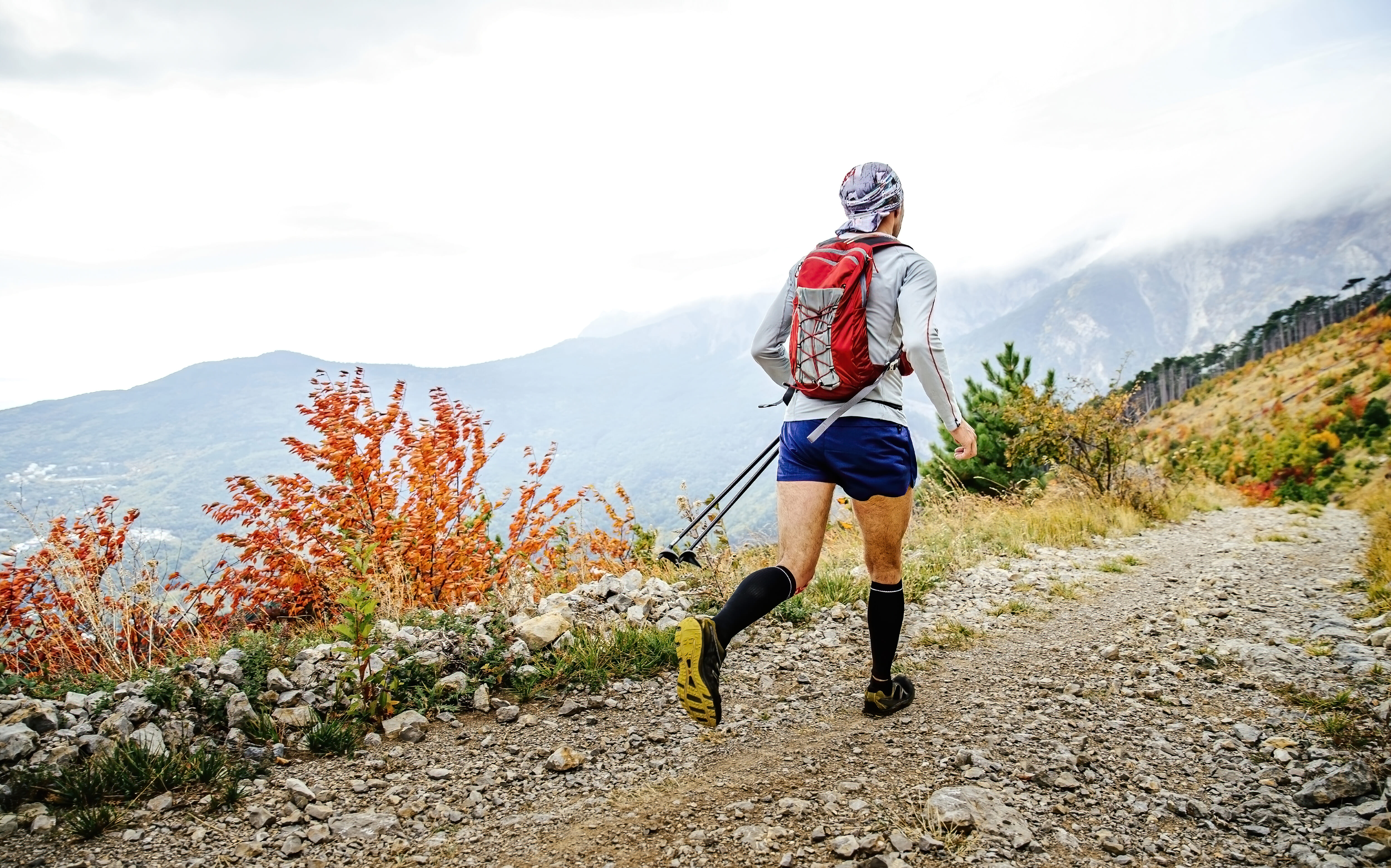
Heading off-road for hours means you need to have the right kit.
DOUBLE-CHECK THE MANDATORY KIT LIST
To succeed in these wild environments, you can't just turn up with a pair of trainers and a grin. Ultra runs, especially those covering 100K or more, will issue a mandatory kit list that is there for a reason.
Our advice?
Check that list and then check it again. There'll be some items on there that seem fairly obvious, like a rucksack and waterproof jacket - heading into the hills for a long run without those is patently a bad idea. Some others you may be tempted to omit to shave some weight off your pack but, in our experience, that's a major mistake.
TimeOutdoors' founder, Andrew, forgot to pack trail running poles for the Ultra Trail de Monte Rosa and turned out to be the only person on the start line without any! With 6,000m+ of climbing involved over the 100K route, that would turn out to be a bit of an oversight. He was lent one by a sympathetic competitor for a short time but ultimately had to struggle over steep Alpine mountains relying purely on leg power - not an experience he's keen to repeat.
Pay heed to the lessons he learned the hard way:
"Buy the lightest poles you can afford, not the telescopic type though - and the best head torch you can afford if there's night running involved, too."
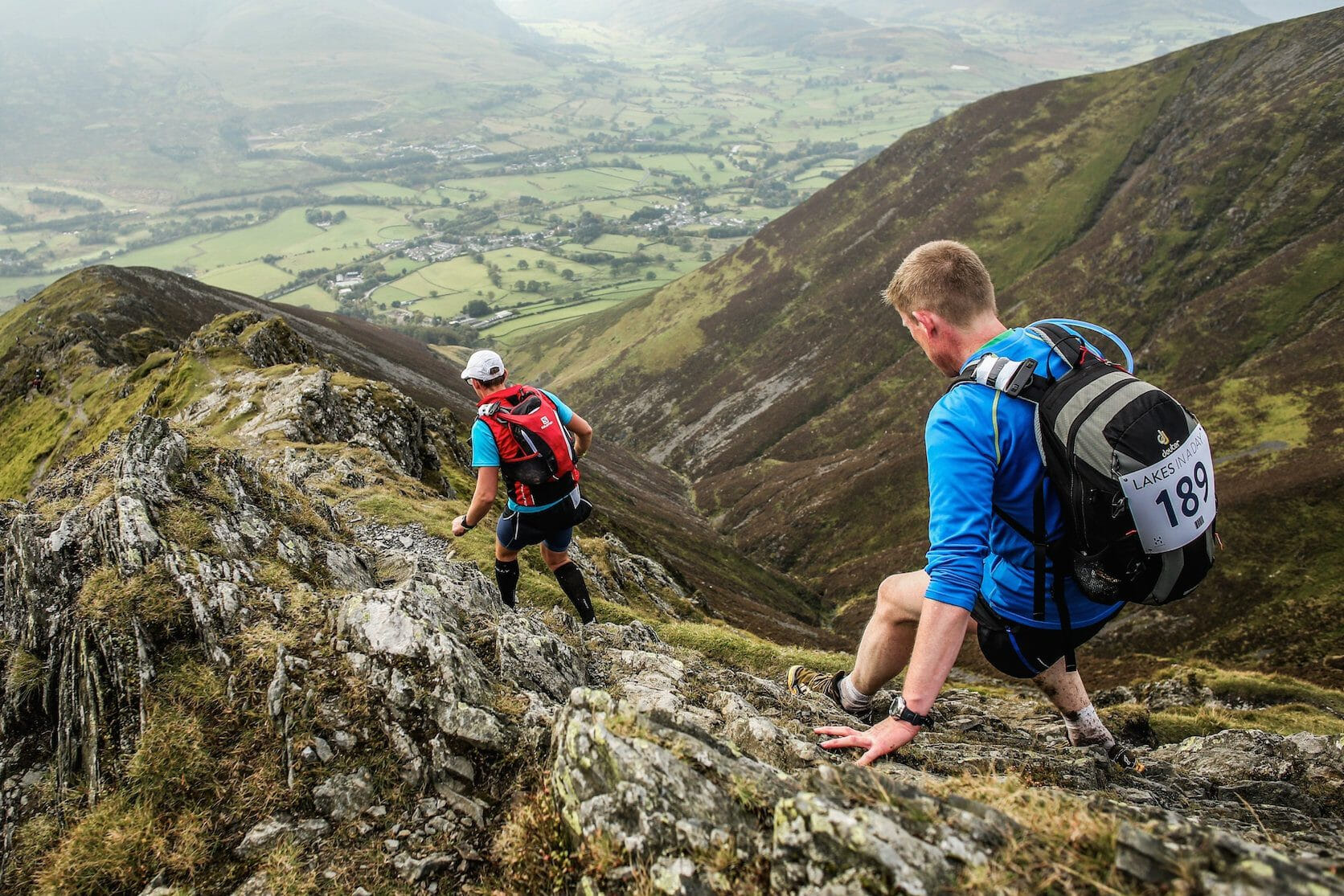
Knowing the route in advance - and in detail - will help you to avoid unpleasant surprises.
DO YOUR HOMEWORK!
In a regular race lasting just a couple of hours, factors like the weather forecast and course profile are less important. In an ultra run, they can be the difference between a successful run and dropping out part way round!
Whether your ultra marathon will take hours or days to complete, you're going to be on your feet for a long time and expending a lot of energy, which means anything that could affect your run is going to be felt much more acutely. While some factors are unpredictable, it's always a good idea to prepare thoroughly by researching the route and reading reviews from previous participants.
True, you won't find a silver bullet that makes running 60 miles across mountainous terrain a walk in the park - but you don't want that anyway or you wouldn't have signed up to an ultra. What you could find is a gem of knowledge that stops your effort being completely derailed by missing a poorly-signed pitstop or rogue incline 50 miles in.
The big takeaway?
Ultra running is not like regular running. It's slower, requires more kit (including some specialist gear) and takes a lot of preparation, both in your training and race strategy.
The reward, though, is an experience like no other, in which you test your limits in a challenging environment and enjoy an unforgettable experience! If you're keen to get started, check out the ultra runs below - they're ideal for anyone entering an ultra marathon for the first time.

- Sat 3 May 2025
- £139
Isle of Wight Ultra Challenge | 1st Half
The first half of the Isle of Wight circuit explore 52km of scenic coastal trails, enjoy spectacular coastal views along the undulating route with plenty of rest stops to keep you well fuelled.
- 52 km trail running + 1100 m ascent
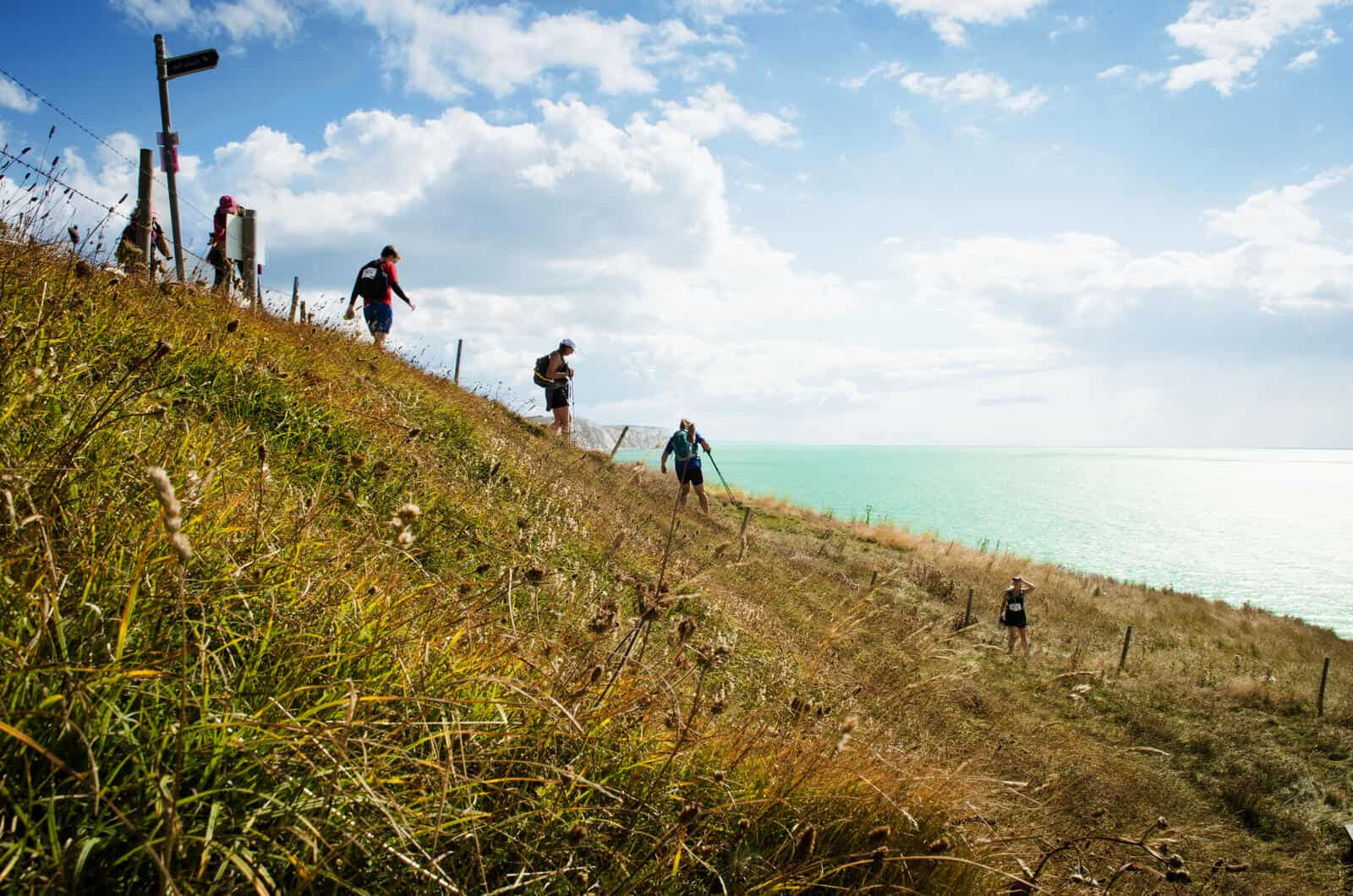
- Sat 3 May 2025
- £199
Isle of Wight Ultra Challenge | Full continuous
An epic challenge, making a full 106km circuit of the Isle of Wight, starting and finishing in Chale, enjoy well stocked rest stops and superb scenery every step of the way.
- 106 km multi terrain running + 1960 m ascent
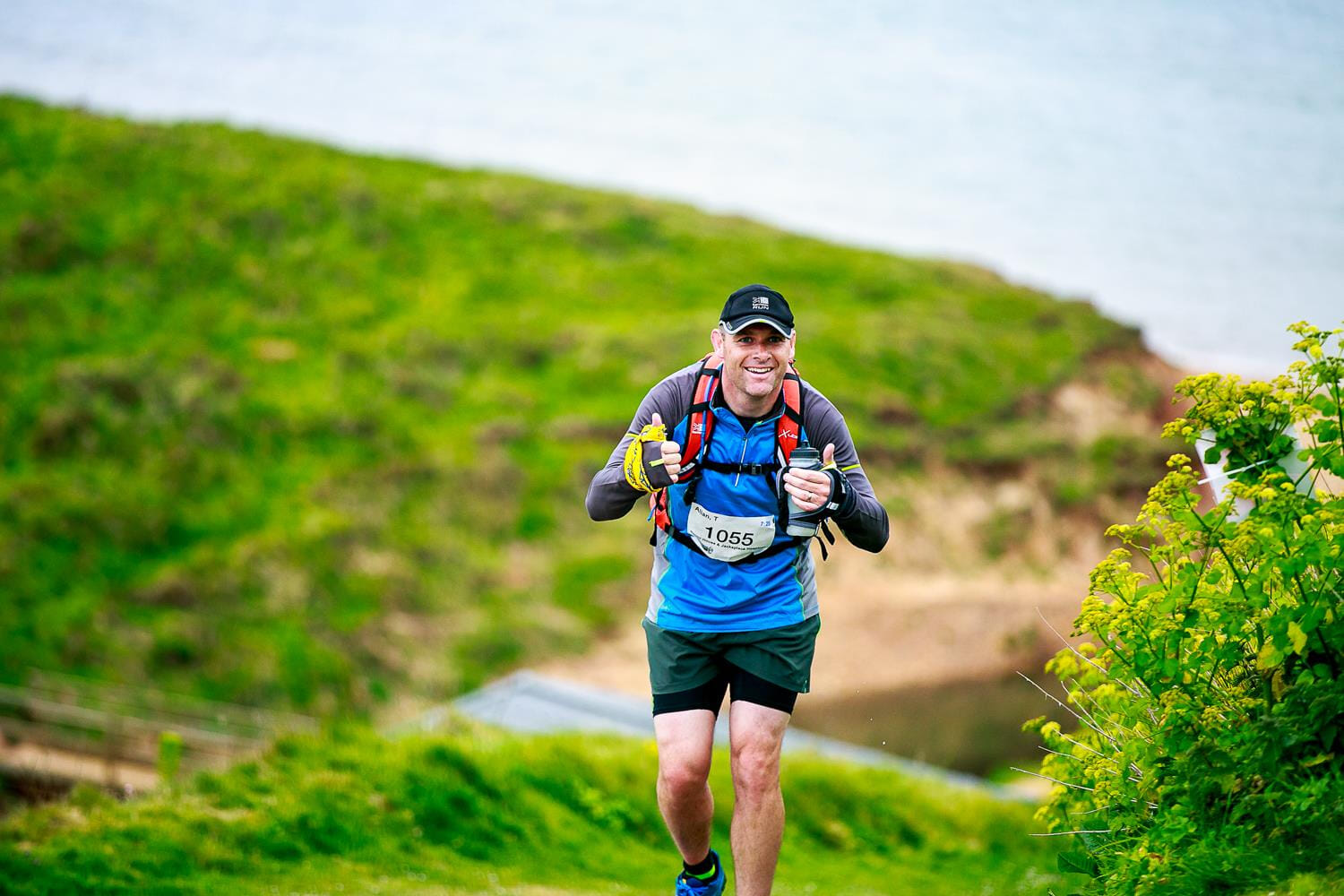
- Sat 3 - Sun 4 May 2025
- £199
Isle of Wight Ultra Challenge | Full 2 day daylight
The full 106km circumnavigation of the Isle of Wight, in daylight hours. Overnight at Cowes for a well-earned rest on this wonderful exploration of the coastal routes around the island.
- 106 km multi terrain running + 1960 m ascent

- Sat 3 - Sun 4 May 2025
- £169
Isle of Wight Ultra Challenge | 3/4 Challenge
The route is 3/4 of the Full Challenge – so starts at the Chale basecamp, heads around the fantastic southern section – on to Cowes, and then a final quarter to a finish line at Culver Down.
- 82 km trail running

- Sat 3 May 2025
- £139
Isle of Wight Ultra Challenge | Southern Loop
A NEW looped route setting out from the Chale basecamp, that gives you the best of the Island’s dramatic scenery along famous southern coastline to the iconic ‘Needles’.
- 50 km trail running

- Sat 3 May 2025
- £139
Isle of Wight Ultra Challenge | 2nd Half
Starting in Cowes, follow a clockwise route along the eastern side of the Isle of Wight, enjoying superb coastal views en route to the finish line at Chale.
- 54 km trail running + 980 m ascent

- Sat 10 May 2025
- £68-£70
Run to the Sea Brighton
An ultra run to the south coast with top reviews, amazing scenery, wonderful trails and rolling downs before reaching the promenade finish line for your ice cream and medal!
- 50 km multi terrain running
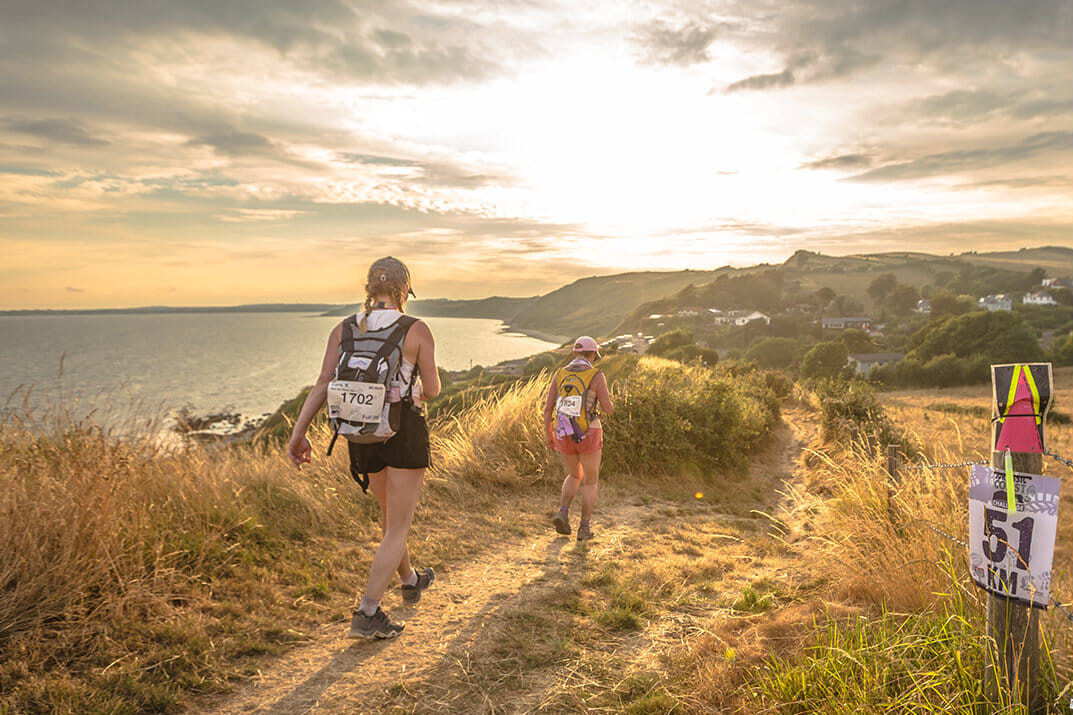
- Sat 17 May 2025
- £139
Jurassic Coast Ultra Challenge | 1st Half
58km of beautiful trail, with ups and downs giving over 1600m of ascent on a gorgeous coastal route which visits some of the highlights of the Jurassic Coast.
- 58 km trail running + 1700 m ascent
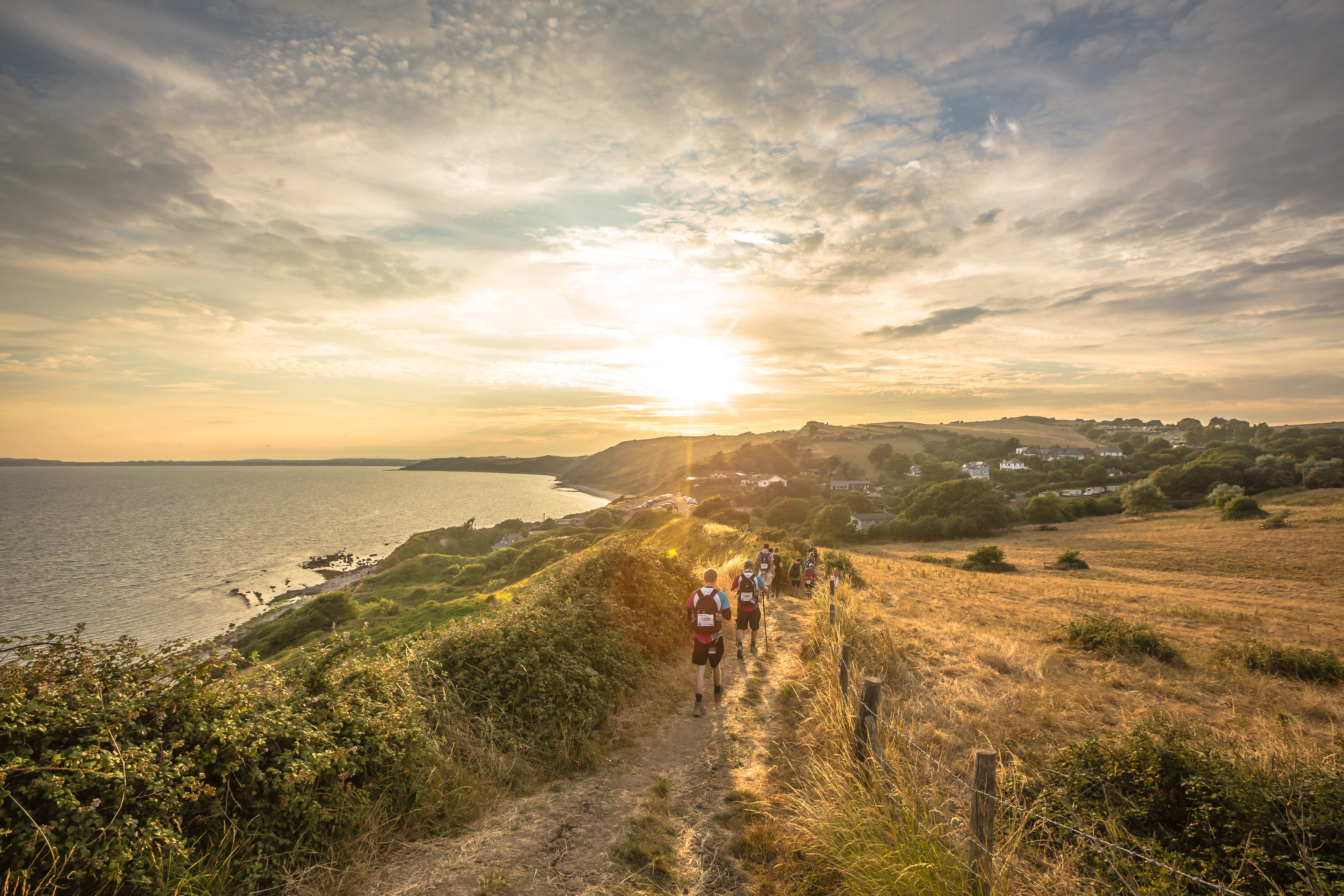
- Sat 17 - Sun 18 May 2025
- £199
Jurassic Coast Ultra Challenge | Full 100km continuous
A demanding challenge, taking on 100km along the UNESCO World Heritage Jurassic Coast, starting from Corfe Castle on a fully-supported challenge visiting the highlights of the region.
- 100 km trail running + 2300 m ascent

- Sat 17 - Sun 18 May 2025
- £199
Jurassic Coast Ultra Challenge | Full 100km over 2 days
Take on the full 100km challenge across two days, to enjoy the entirety of the route during daylight, with camping options at the halfway Basecamp in Weymouth.
- 100 km trail running + 2300 m ascent
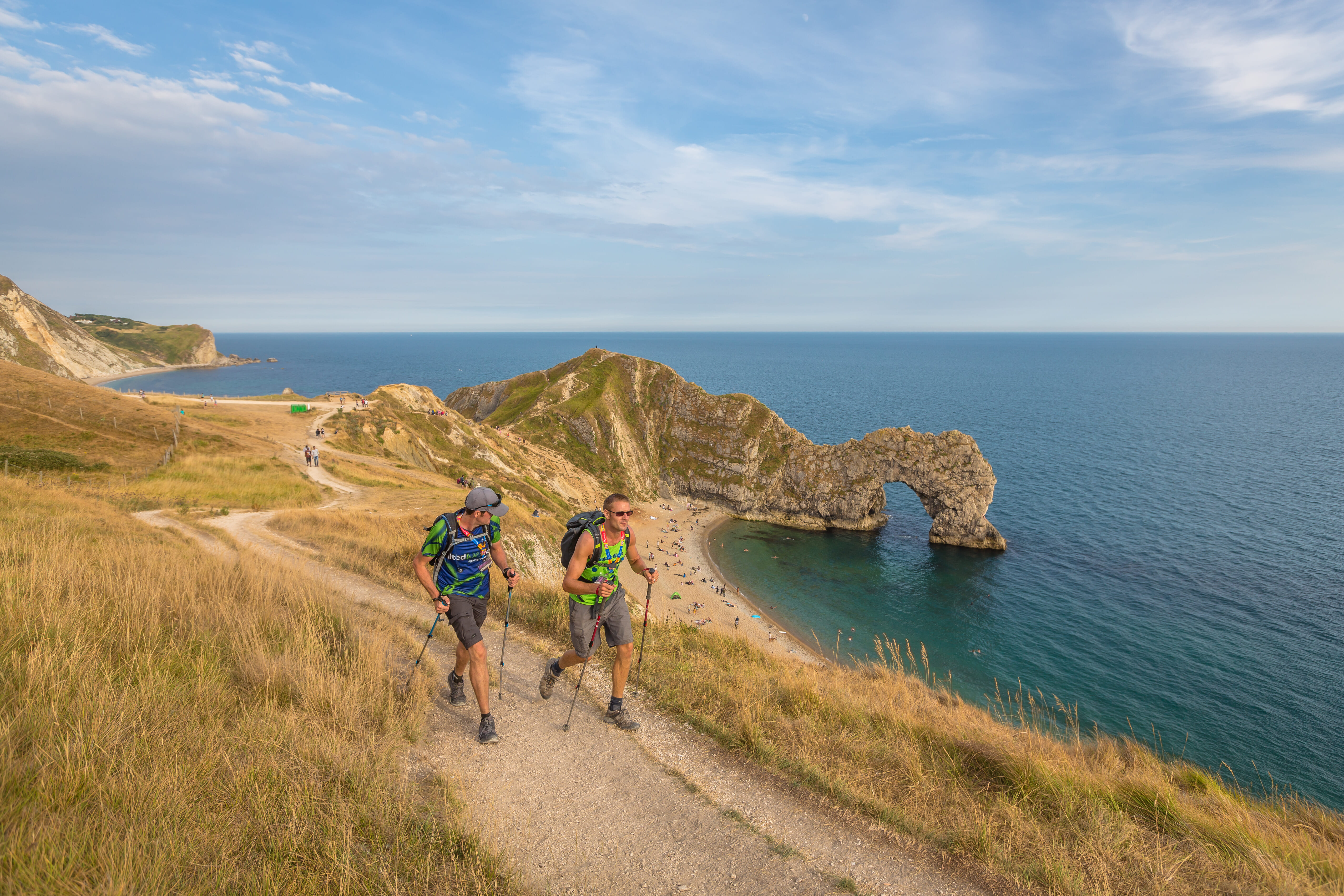
- Sat 17 May 2025
- £169
Jurassic Coast Ultra Challenge | 3/4 Challenge
The route is 3/4 of the Full Challenge – so starts at the Corfe Castle main start, takes in the fantastic 2nd 1/4 Challenge route to Weymouth, and then on to West Bay & the finish line at Bridport.
- 76 km trail running
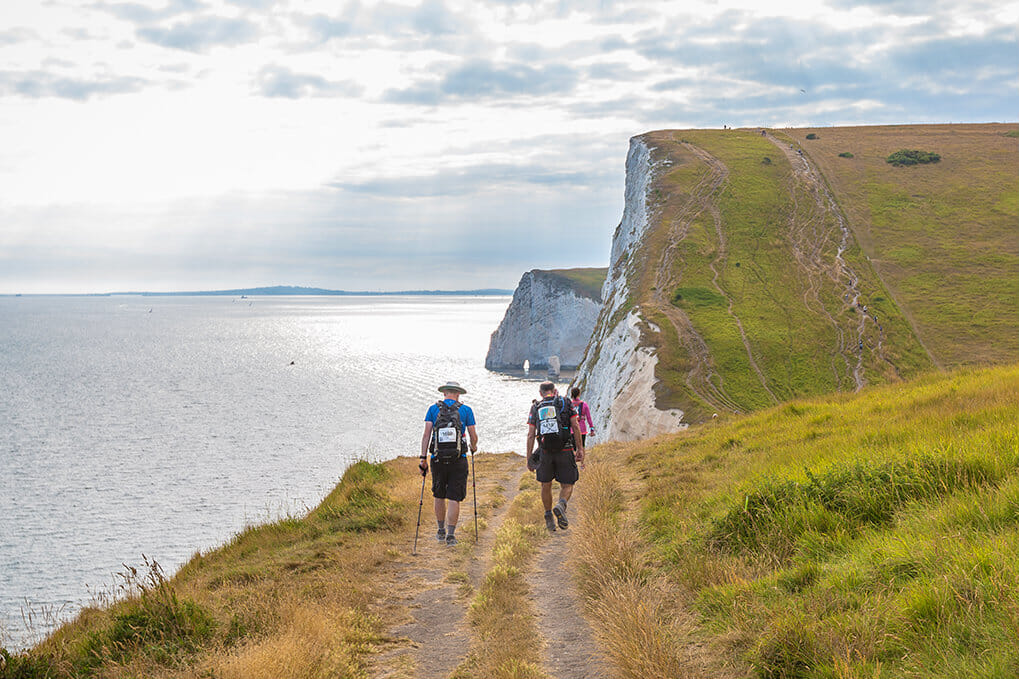
- Sat 17 May 2025
- £139
Jurassic Coast Ultra Challenge | 2nd Half
A marathon distance challenge departing from Weymouth, visiting Chesil Beach and the West Dorset Heritage Coast en route to the finish line at Bridport.
- 42 km trail running + 600 m ascent
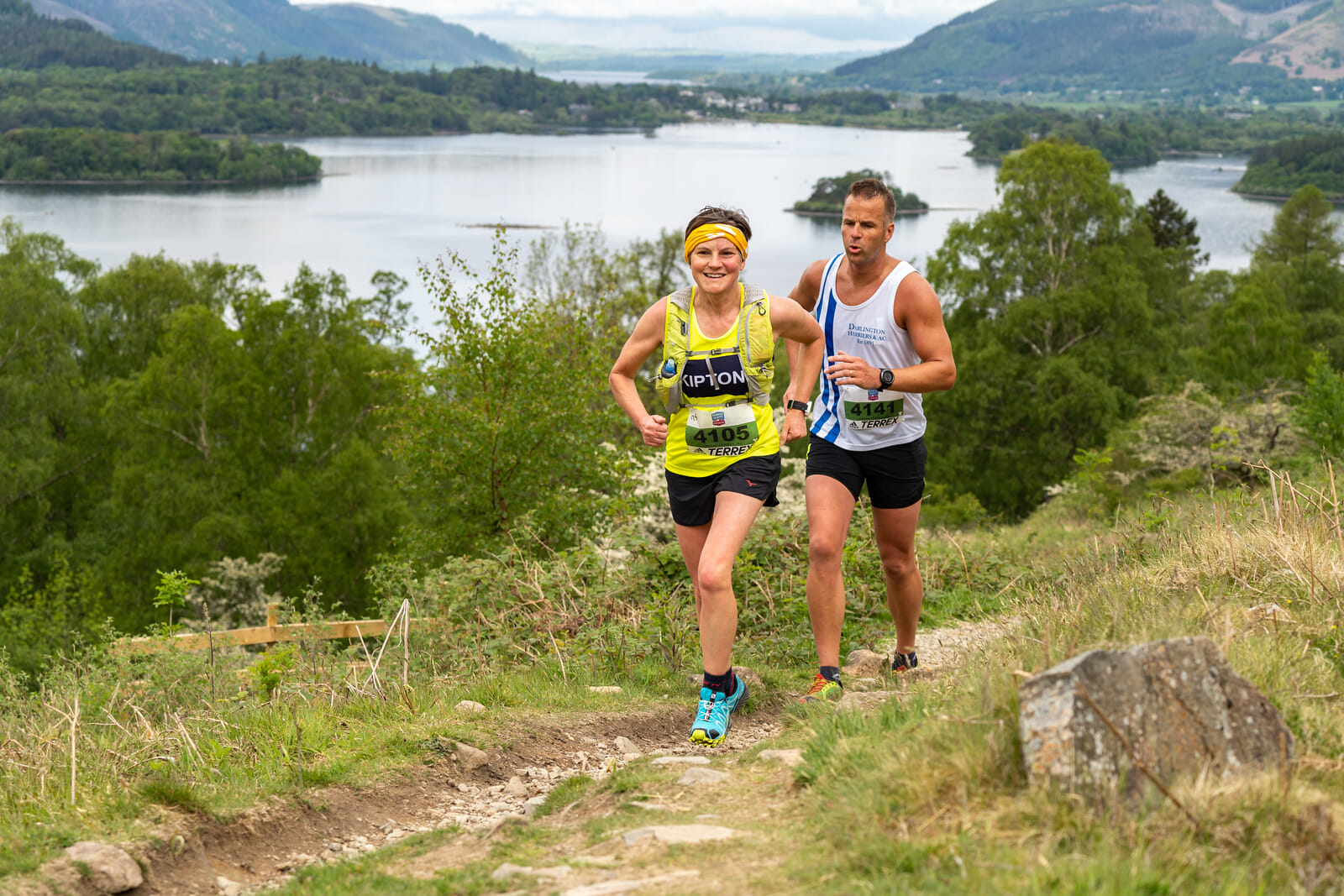
- Sun 18 May 2025
- £75-£80
Keswick Mountain Festival | adidas TERREX 50K Trail Ultra Marathon
The ultra is graded ‘very hard’ and one to get into your ultra running calendar if you’re looking for UTMB index runs where you can bag points. Includes Full Weekend Festival Ticket in the price!
- 50 km trail running + 1995 m ascent
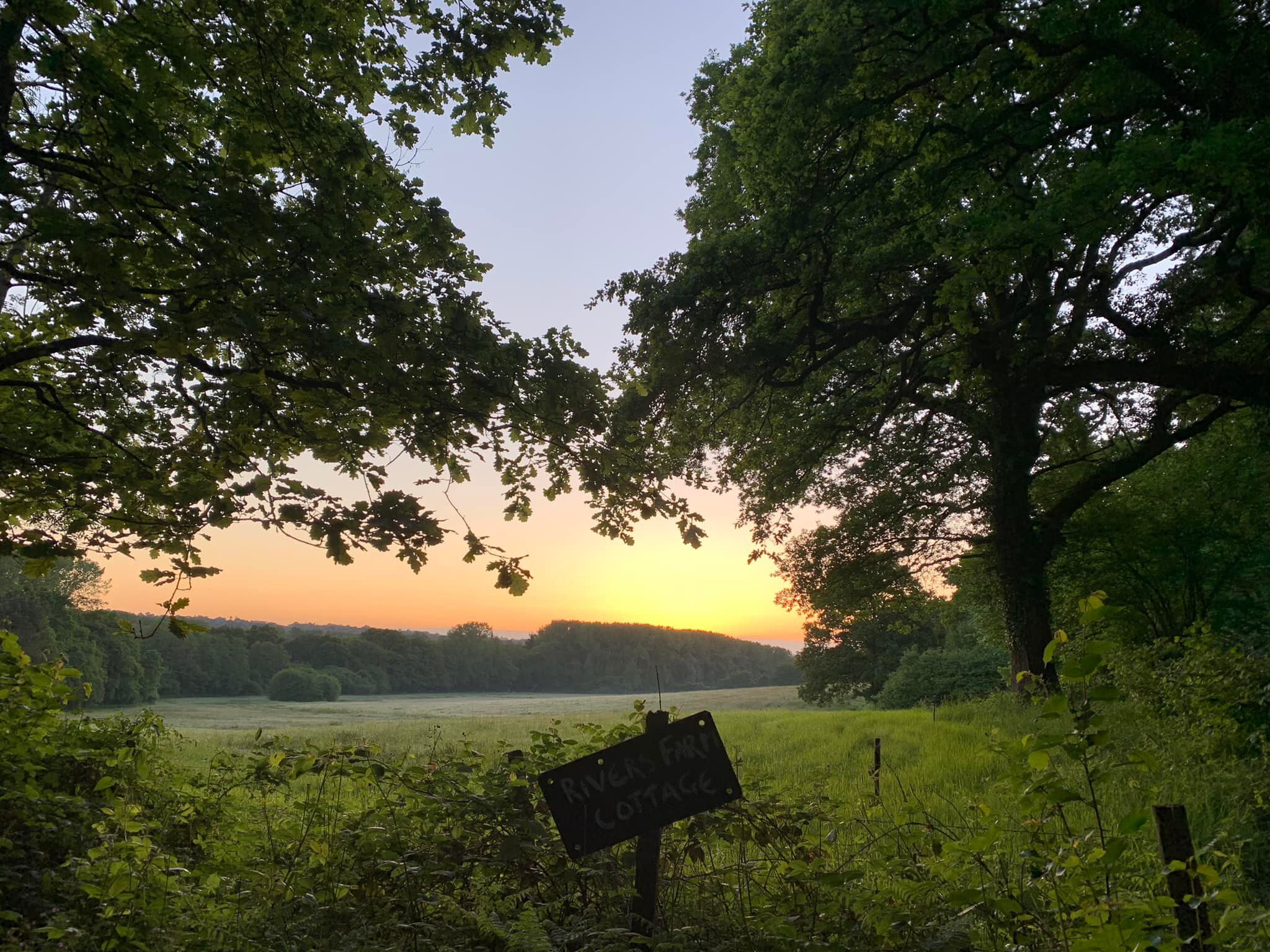
- Sat 24 May 2025
- £139
London 2 Brighton Ultra Challenge | 1st Half
A 56km challenge, taking in around 750m of ascent, initially following the path of the River Thames, before exploring the North Downs en route to the finish at Turners Hill
- 56 km trail running
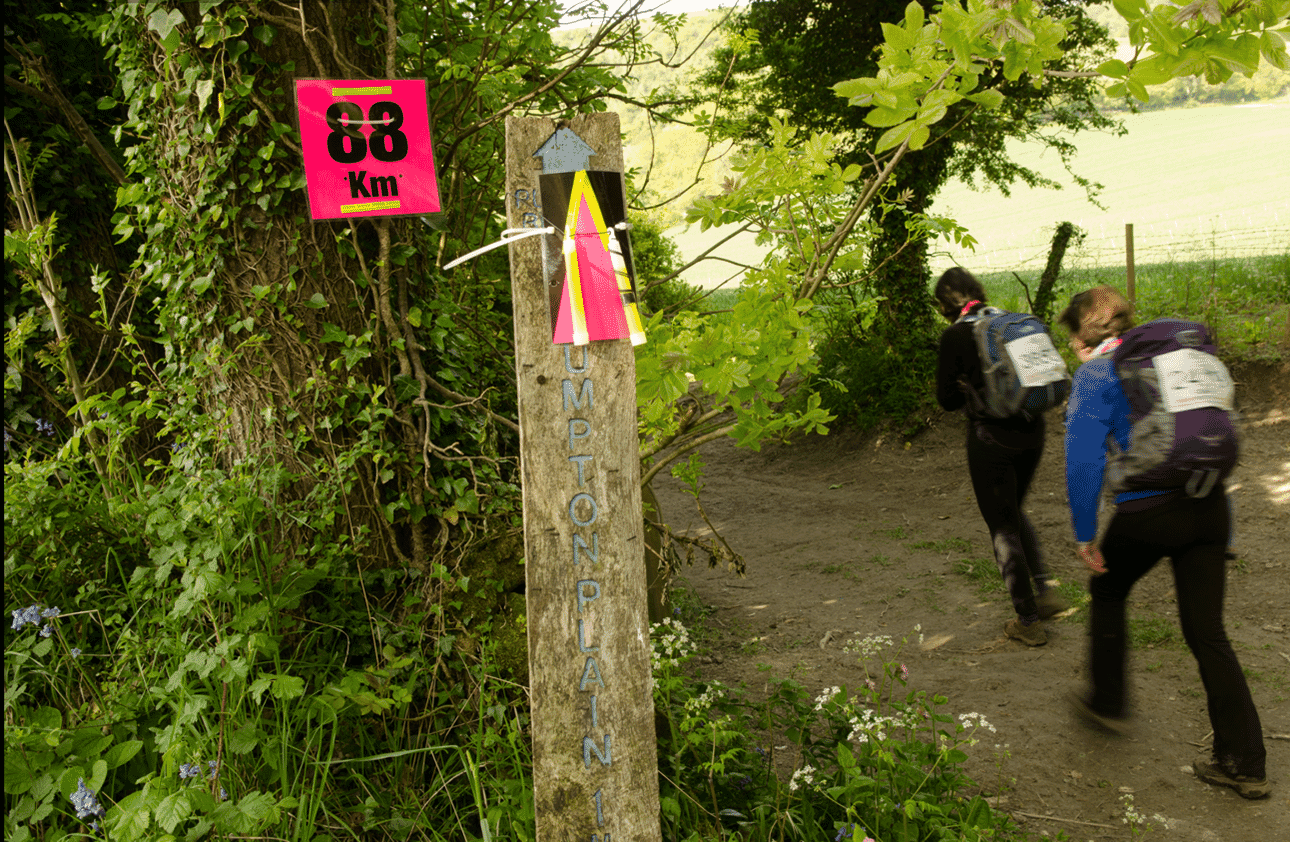
- Sat 24 May 2025
- £199
London 2 Brighton Ultra Challenge | Full 100km continuous
Walk, jog or run the journey from Capital to Coast, over the North and South Downs. A fully supported challenge leaving Richmond-upon-Thames for the finish line at Brighton Racecourse.
- 100 km trail running + 1500 m ascent
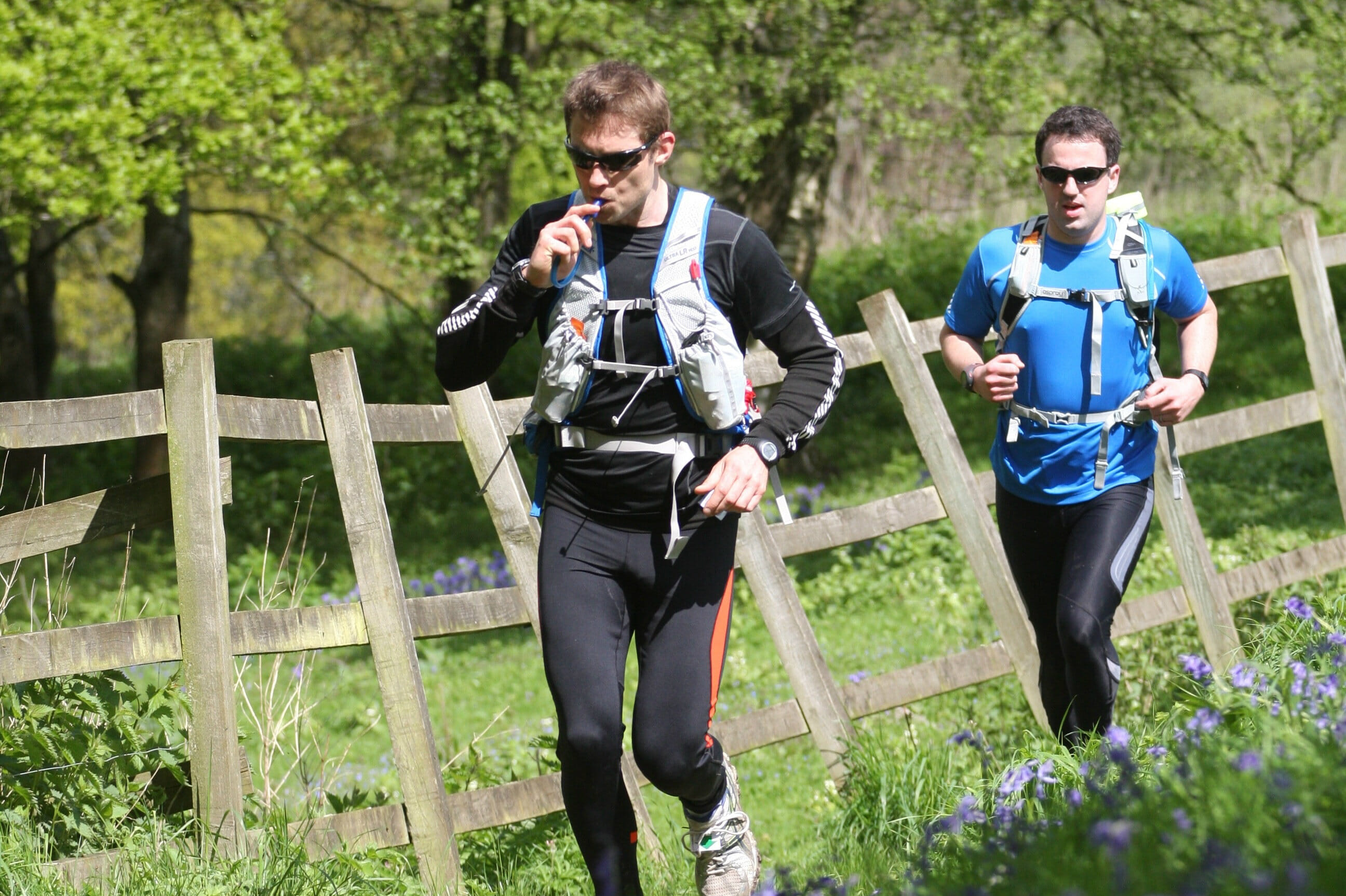
- Sat 24 - Sun 25 May 2025
- £199
London 2 Brighton Ultra Challenge | Full 100km over 2 days
Walk, jog or run the full 100km London to Brighton route, over two daytime sessions, with an overnight stop at the Basecamp at Turners Hill.
- 100 km trail running + 1500 m ascent

- Sat 24 - Sun 25 May 2025
- £169
London 2 Brighton Ultra Challenge | 3/4 Challenge
Starting at Oaks Park then following the fantastic 2nd 1/4 Challenge route to Tulley’s Farm in Turners Hill, and then on over the South Downs & the finish line at Brighton Racecourse.
- 75 km trail running + 1300 m ascent
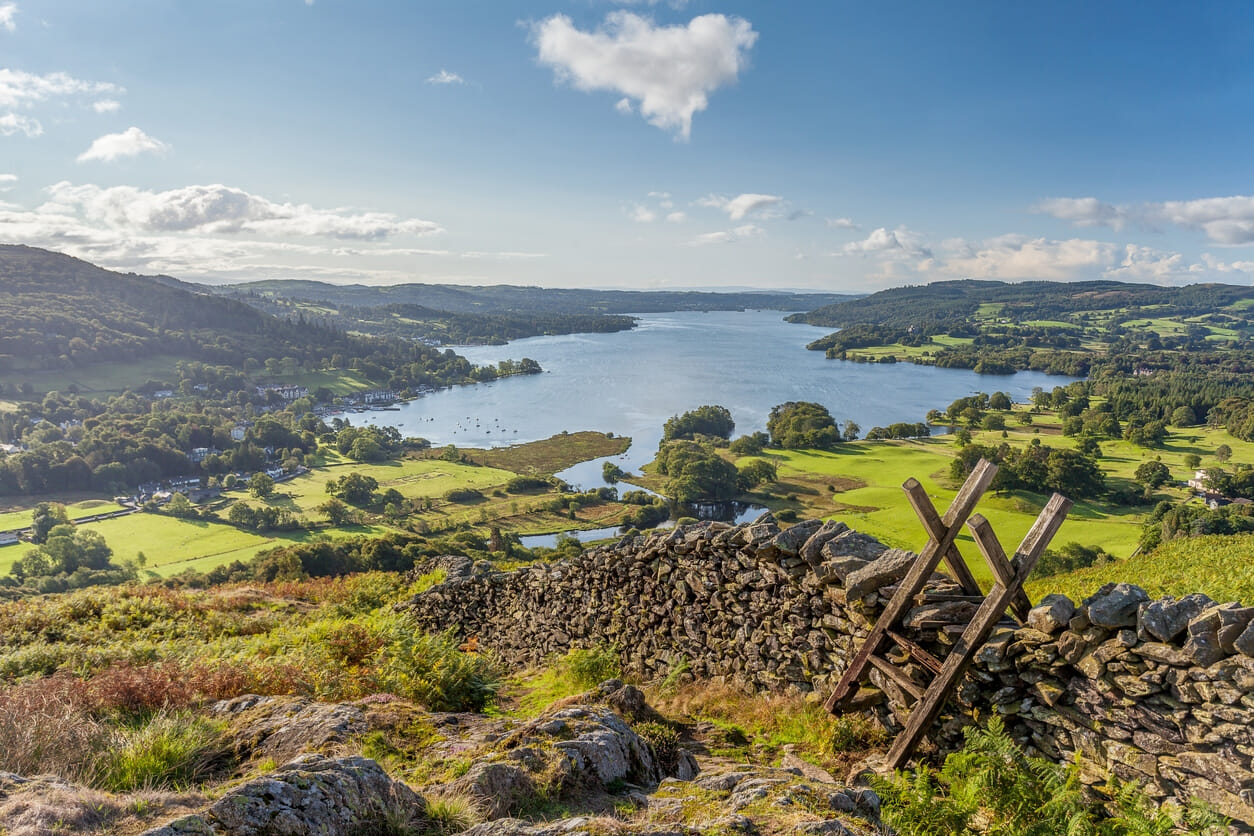
- Sun 1 - Sun 8 Jun 2025
- £199
Lake District Ultra Challenge | Full 100km continuous
Take on the full 100km challenge, starting from Kendal Base Camp, a fully supported ultra. making a glorious loop of the spectacular south Lakes.
- 100 km trail running + 2500 m ascent

- Sat 7 Jun 2025
- £139
Lake District Ultra Challenge | 1st Half
Take on the first half of the full 100km challenge, starting from Basecamp in Kendal to the far side of the beautiful Lake Windermere.
- 50 km trail running + 1300 m ascent

- Sat 7 - Sun 8 Jun 2025
- £199
Lake District Ultra Challenge | Full 100km over 2 days
Take on the full 100km challenge during the hours of daylight, split over the two days. Enjoy the whole incredible route, whilst also getting a well-deserved overnight sleep.
- 100 km trail running + 2500 m ascent